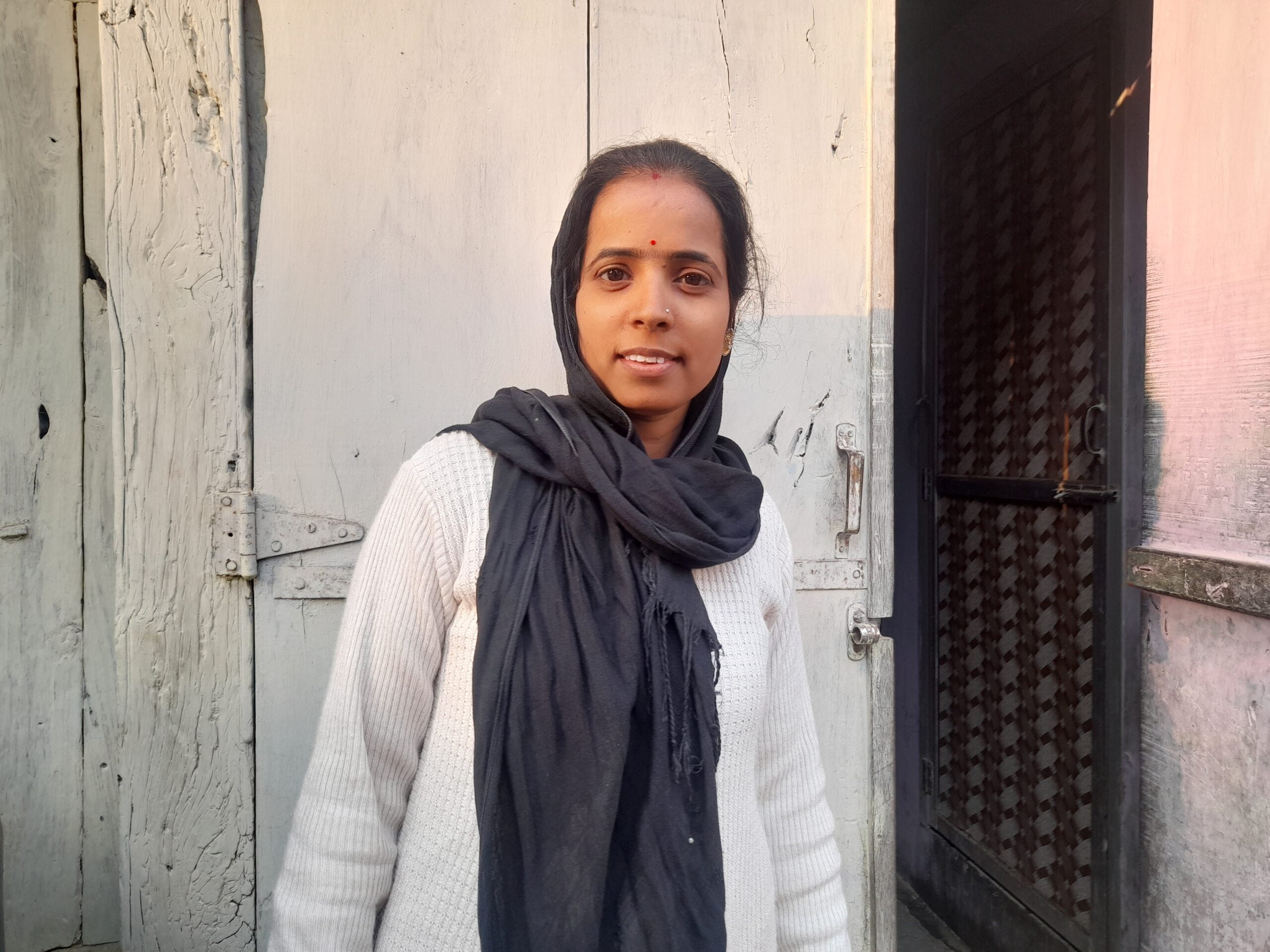I have been working with RajPusht as a POSHAN Champion for over a year in and around Awleshwar village in Pratapgarh District. This is my first job on a nutrition project. While I had an elementary understanding of issues related to nutrition, I didn’t know much about counselling or Behaviour Change Communication.
I still remember my first day at work. I visited many villages with Block Programme Manager Vijay Patidar and learnt about the kind of foods people eat, how traditions and eating habits differ between cities and villages, locally available nutritious foods and the optimal diet for pregnant women and new mothers. I then started going to villages by myself and interacted with beneficiaries. I was initially a bit hesitant, but I was determined to work for the mothers and children I met. I counselled them regarding a nutritious diet and recommended pregnancy care and childcare practices. This wasn’t just a job for me; I had the chance to bust myths, taboos and the harmful practices prevalent in the region and leave a lasting impact by improving mothers and children’s health.
When I tell pregnant women and new mothers that they should have at least three meals a day and snacks on top of that, many respond that it would harm the child. One of them was Geeta. She said that she had only two meals a day and was scrupulously avoiding milk, ghee and other dairy products. While I counselled her, she did not pay much heed to my advice. The next time I met her, she looked downcast. She said that the doctor she had met for her ante-natal check-up had told her that she had barely gained any weight during her pregnancy, as a result of which both she and her child might face complications. I then repeated all the advice I had earlier shared and reinforced those on subsequent visits. A couple of months later, I got a call from an unknown number. “Namaste, Aarti Madam,” came the voice from the other end. “Gita just had a boy and he weighs 2,900 g.” It was Gita’s mother-in-law. She was elated that her grandson was healthy.
I also remember Mamta, whom I had met in the fifth month of her pregnancy. Her weight had increased by only 1 kg since she conceived. When I asked her about this, she said, “Is it really important to gain weight during pregnancy?” Many families believe that women shouldn’t gain a lot of weight during pregnancy as it leads to complications during delivery. It was relatively easy to convince Mamta about the dangers of inadequate weight gain during pregnancy. Often, all it takes is for someone to provide the correct information. I am in touch with all the first- and second-time mothers in the villages I work in. While not all families follow my advice, I have seen many people’s notions and practices changing despite deep-rooted traditions. I am grateful to Anganwadi Workers, ASHAs and women in these villages for supporting me in my work and helping me in my quest for better nutrition.
